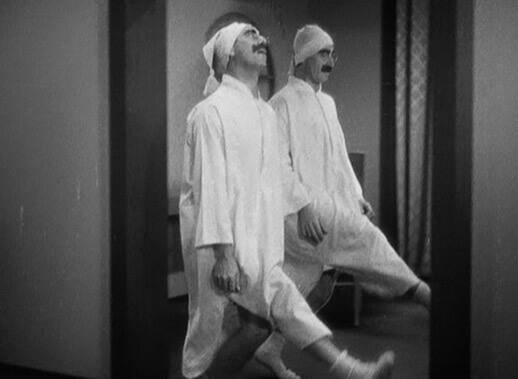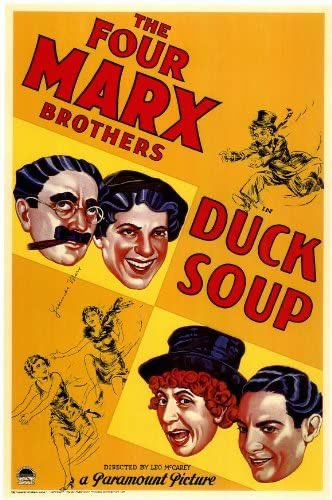

No auteurs were they throughout, they remained more interested in the nearest card game than the mechanics of film-making. And the Marx brothers only started making films at all when sound took over, brought to Hollywood as exactly the kind of brassy fast talkers the movies were now to showcase. Among film historians, there are mixed feelings about the very existence of sound - the great leap forward that ruined so many careers and so much exquisite technique. How better to convey the Marxes’ brilliance than the riotous number from 1932’s Horse Feathers, “Whatever It Is, I’m Against It”?īut all that noise can hit a nerve. No pseudishness can drown out the glorious racket, the flying insults, the crazed non sequiturs and the musical eruptions that Harpo, with his harp, was usually party to. More to the point, even with the mirror scene, Duck Soup remains, like every other Marx brothers film, essentially a din. The cynical reader may find themselves unable to refrain from picturing Harpo’s response. “Watching his screen adventures,” author Wayne Koestenbaum says, “I don’t laugh. One recent book, The Anatomy of Harpo Marx, devoted itself to academic scrutiny of every movement he made on film. Lately, analysing Harpo has become a zealous business. While making Duck Soup, its director Leo McCarey, too, preferred to work with Harpo on his wordless routines, leaving the verbal gags to fend for themselves.

Salvador Dalí was among those smitten, presenting him with a barbed-wire harp and writing a script for him to star in, Giraffes on Horseback Salad.
DUCK SOUP MARX BROTHERS MIRROR SCENE FULL
Groucho Marx in the movie’s famous mirror scene © Paramount Picturesīut it was always Harpo, the mute with the angelic curls and the raincoat full of car horns, who sneaked the brothers into high culture and drew in the aesthetes. After all, the entire point of Groucho, with his logic-bending and pricks at pomposity, was that he never shut up (and if he ever did, Chico would take over). It’s strange that the Marxes’ signature moment involves about the only three minutes in their whole career when someone isn’t talking. Variations on the skit had been performed by others before but the brothers raised it to undreamt absurdist heights, claiming it for ever as their own. The result is flawless, the kind of ecstatic comedy in which the world outside the cinema simply falls away. Dressed identically, the intruder pretends to be his reflection, and the two brothers spend the next three minutes locked in a mad dance of mimicry. President Groucho in nightgown and cap finds Harpo, a spy, in his rooms. The film also features the brothers’ most cherished routine: the mirror scene. In the decades since, the world has rarely let its themes become passé. Not only is it wildly funny, it was made as the rumbles of fascism from Europe grew thunderous (Mussolini took personal umbrage). Sniffed at by critics when it first came out, the film has long been acknowledged as a masterpiece. The closest they come is with Duck Soup, their 1933 satire of dictatorship and war, starring Groucho as the leader of obscure republic Freedonia.

The Marxes are loved they are not quite revered. Like Chaplin, they are seen as great - but their greatness is of a different order. Of course, Groucho, Chico and Harpo are treasured, too (I’ll exempt the hapless fourth brother and fifth wheel Zeppo) but still they sit at the other end of the court, anarchically firing off wisecracks. Originally a mere entertainer, Chaplin is now solemnly viewed as an artist and a visionary. After a few haphazard games, Groucho sat down on court, opened the suitcase, and unpacked a picnic lunch.Īs the BFI begins a season of Marx brothers films in London, the tennis match seems neatly symbolic. “What kind of tennis player are you?”Ĭhaplin fumed that he hadn’t come here to be a straight man but it was already too late. Groucho asked in turn what was in Chaplin’s. Chaplin, grimly serious about his tennis, saw Marx step on court with 12 rackets and a suitcase, and inquired what was in it. The occasion was the opening of a new clubhouse, and an America vs England pro-celebrity doubles match in which Chaplin and Fred Perry were to play Marx and Ellsworth Vines. In July 1937, Charlie Chaplin and Groucho Marx arrived at the Beverly Hills Tennis Club.


 0 kommentar(er)
0 kommentar(er)
